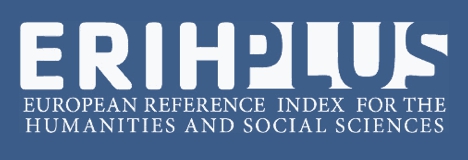School geography and the place: a knowledge’s construction in the teaching/learning geography process
Abstract
This article aims to highlight the place category in the spatiality’s comprehension, to give visibility to the construction of meanings lived by a given community, in a given place, capable of understanding its own totality and, consequently, of the apprehension of the production’s process and reproduction of the space itself. Researches show that it is possible to attribute meanings to the contents of Geography by means of the identification and analysis of the phenomena experienced in the daily life lived by the students and their subsequent relation with other contexts, in other scales. The methodology used for its elaboration is based on the qualitative perspective, whose bibliographic research is based on authors who research the School Geography. In this sense, the work is divided into three interrelated moments. The preference of this theme is related to the search for possibilities and methodological propositions more consistent with the process of teaching/learning Geography.
References
BAILLY, A. SCARIATI, R. L'humanisme en géographie. In: BAILLY, Antoine. Les concepts de la géographie humanine. Paris: Armand Colin,p.213-222, 2001.
BRASIL. Secretaria de Educação Fundamental. Parâmetros curriculares nacionais: terceiro e quarto ciclo do ensino fundamental: Geografia. Brasília: MEC/SEF, 2001.
CALLAI, H. C. Geografia: um certo espaço, uma certa aprendizagem. Tese (Doutorado em Geografia) – Pós-Graduação em Geografia. São Paulo: USP, 1995.
____________. O ensino de Geografia: recortes espaciais para análise. In:CASTRIGIOVANNI, A. C. et al (Orgs.). Geografia em sala de aula: práticas e reflexões. Porto Alegre: Ed. da Universidade, p. 56-60, 1999.
____________. Estudar o lugar para compreender o mundo. In: CASTROGIOVANNI, A. C. (Org.). Ensino de Geografia: práticas e textualizações no cotidiano. Porto Alegre: Mediação, p. 72-112, 2000.
____________. A Geografia escolar - e os conteúdos da Geografia. Anekumene, v. 1, n. 1, p. 128–139, 2011.
CARLOS, A. F. A. O lugar no/ do mundo. São Paulo: Labur Edições, 2007.
CARVALHO SOBRINHO, H. LEITE, C. M. C. Geografia Escolar e o lugar: construção de um processo de ensino/aprendizagem significativo. Presidente Prudente: Enapege, 2015.
____________. A categoria lugar na construção de significados no ensino de Geografia: alguns pressupostos. Revista Querubim, n. 30, v. 2, p. 112-118, 2016. Disponível em < http://www.uff.br/feuffrevistaquerubim/images/arquivos/zzquerubim_30_v_2.pdf>. Acesso em 15/12/2016.
CASTELLAR, S. M. V. Educação Geográfica: Formação e didática. In: MORAIS, E. M. B.; MORAES, L. B. (Orgs.). Formação de professores: conteúdos e metodologias no ensino de Geografia. Goiânia: Nepeg, 2010.
CASTELLAR, S. M. V. VILHENA, J. Ensino de Geografia. Cengage Learning, 2010.
CAVALCANTI, L. S. Geografia e práticas de ensino. Goiânia: Alternativa, 2002.
____________. A Geografia escolar e a cidade: Ensaios de Geografia para a vida urbana cotidiana. Campinas, SP: Papirus, 2008.
____________. O ensino de Geografia na escola. Campinas, SP: Papirus, 2012.
DAMIANI, A. L. A Geografia e a construção da cidadania. In: CARLOS, Ana Fani. A. (Org.). A Geografia na sala de aula. São Paulo: Contexto, 1999. p. 50-61.
DEBORD, G. A sociedade do espetáculo: comentários sobre a sociedade do espetáculo. Rio de Janeiro: Contraponto, 1997.
FERREIRA, L. F. Acepções recentes do conceito de lugar e sua importância para o mundo contemporâneo. Território. Rio de Janeiro, ano 5, n. 9, p. 65-83, jul./dez., 2000.
GIDDENS, A. As consequências da modernidade. São Paulo: Editora UNESP, 1991.
HARVEY, D. A Condição Pós-Moderna. São Paulo: ed. Loyola, 1992.
LEITE, C. M. C. “Geografia no Ensino Fundamental” In: Universidade/Departamento de Geografia. Espaço e Geografia (UnB), v. 5, p. 245-280, 2002.
____________. O lugar e a construção da identidade: os significados construídos por professor de Geografia do ensino fundamental. 222 f., 2012. Tese (doutorado em Geografia). Faculdade de Educação, Programa de pós-graduação em Educação, Universidade de Brasília, 2012.
LEITE, C. M. C. BARBATO, S. B. Reflexões sobre o conceito de lugar na escola contemporânea. Espaço e Geografia, v. 14, p. 225-255, 2011.
LIBÂNEO, J. C. Didática, São Paulo: Cortez. 1994.
MACÊDO, H. C. REFLETINDO SOBRE O ESPAÇO VIVIDO: o lugar na construção dos conhecimentos geográficos. Revista Brasileira de Educação em Geografia, v. 5, n. 10, p. 152-165, 2016.
MARANDOLA JR, E.; HOLZER, W.; OLIVEIRA, L. (orgs.).Qual espaço do lugar? Geografia, epistemologia, fenomenologia. São Paulo: Perspectiva, 2012.
OLIVEIRA, S. R. F. O que fomos, o que somos e o que queremos ser: uma reflexão sobre a docência. História; Ensino, v. 11, p. 63-73, 2012.
PONTUSCHKA, N. N.; PAGANELLI, T. I; CACETE, N. H. Para Ensinar e Aprender Geografia. São Paulo: Ed. Cortez, 2007.
RELPH, E. Place and placelessness. London: Pion, 1976.
SANTOS, M. A natureza do espaço: técnica e tempo, razão e emoção. São Paulo: Hucitec, 1996.
____________. O espaço do cidadão. 5 ed. São Paulo: Studio Nobel, 2000.
____________. Da Totalidade ao Lugar. São Paulo: EDUSP, 2008.
____________. Por uma outra globalização: do pensamento único à consciência universal. São Paulo: BestBolso, 2009.
STRAFORINI, R. Ensinar Geografia: o desafio da totalidade-mundo nas séries iniciais. Annablume, 2008.
TUAN, Yi-Fu. Espaço e Lugar: a perspectiva da experiência. Tradução de Lívia de Oliveira. Londrina, PR: Eduel, 2013.
Keywords

This work is licensed under a Creative Commons Attribution-NonCommercial 4.0 International License.
Policy Proposal for Free Access Journals
Authors who publish in this journal agree to the following terms:
a. Authors retain the copyright and grant the journal the right of first publication, with the work simultaneously licensed under the Creative Commons Attribution License which allows the sharing of the work with acknowledgment of the authorship of the work and initial publication in this journal.
b. Authors are authorized to take additional contracts separately, for non-exclusive distribution of the version of the work published in this journal (eg publish in institutional repository or as a book chapter), with acknowledgment of authorship and initial publication in this journal.
c. Authors are allowed and encouraged to publish and distribute their work online (eg in institutional repositories or on their personal page) at any point before or during the editorial process, as this can generate productive changes, as well as increase the impact and The citation of published work (See The Effect of Free Access).





















